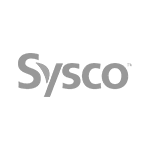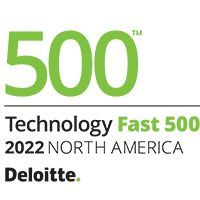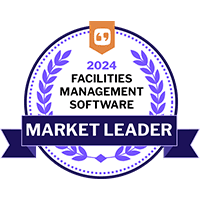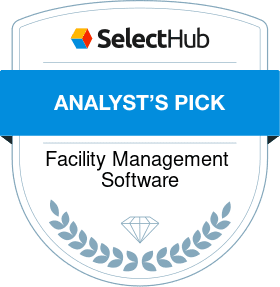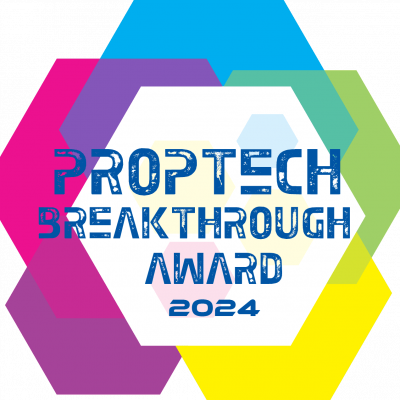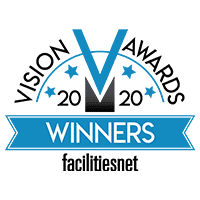How do I create a people-centric workplace?
The challenge of implementing digital technologies to make an office smart is falling into the trap of focusing on the technology itself. Businesses shouldn’t implement tools without first understanding how and why people want to use them in the first place.

Using Data to Understand People
Businesses that successfully capture and analyze occupancy and environmental data can use that workplace intelligence to attract and retain talent with flexible work strategies, improve the utilization of their facilities, reduce energy costs, and design a workplace that optimizes the physical space while reflecting the actual work habits of your employees.
Workplace occupancy & environmental sensors that monitor occupancy, utilization, and the environment are used in hybrid workplaces to identify opportunities to optimize space and reduce overall expenses. In fact, a 2020 report by commercial real estate services firm, JLL, revealed that occupancy/vacancy levels remain the top priorities for most respondents globally, followed by utilization level and density. These top three metrics have remained in the same positions year-over-year, underscoring their significance.
Companies are ready to take this practice to even more sophisticated levels in order to better compete for talent in today’s labor market. More than 75 percent of respondents said they wish to improve space data accuracy, and improve their use of data to achieve real estate savings as well as operational savings.
Workplace occupancy and environmental sensors can play a key role in designing hybrid workplace strategies that improve productivity and employee satisfaction. Real-time data about how employees use the workplace enables leaders to not only keep track of the utilization of space and assets, but also to identify issues and enhance the workday experience.
Utilization analytics can reveal trends and anomalies that upon further investigation often present easily solvable problems. A heatmap view of the floorplan shows high traffic areas that may need additional signage to encourage physical distancing or establish one-way traffic patterns during times of heightened awareness. The analysis of individual rooms or seats could reveal faulty chairs, noisy air conditioners, or missing equipment. Combined with a reservation system, sensors can auto-release reservations when no presence is detected, opening the space to another user and preserving the integrity of reservation and utilization reporting.
Implementing workplace occupancy & environmental sensors can also result in more efficient, comfortable, and sustainable facilities with longer lifespans. The total number of smart devices in buildings was expected to reach 10 billion by 2020. The International Facility Management Association (IFMA) estimates that these Internet of Things (loT) devices can support a 50 percent increase in cost efficiency, including energy, maintenance and other recurring costs (Haak, 2018).
When employees are in the office, environmental sensors can help you monitor everything from the temperature in meeting rooms to lighting and CO2 concentrations in order to improve the comfort and wellbeing of employees, making the office a place employees feel highly productive. When employees are out of the office, sensors can help you adjust your building settings to reduce energy consumption.

A well-designed, healthy, hybrid workplace will be a magnet for top talent in the local region, and effective hybrid strategies allow employees to more easily balance their work and personal lives.
A hybrid workplace design that is informed by sensors is naturally reflective of the way employees actually work, opening the door to much higher levels of productivity and engagement.
A transition to hybrid work combined with a smart sensor strategy lays the groundwork for a workplace transformation that extends beyond real estate cost savings and can have a significant positive impact on organizational culture.
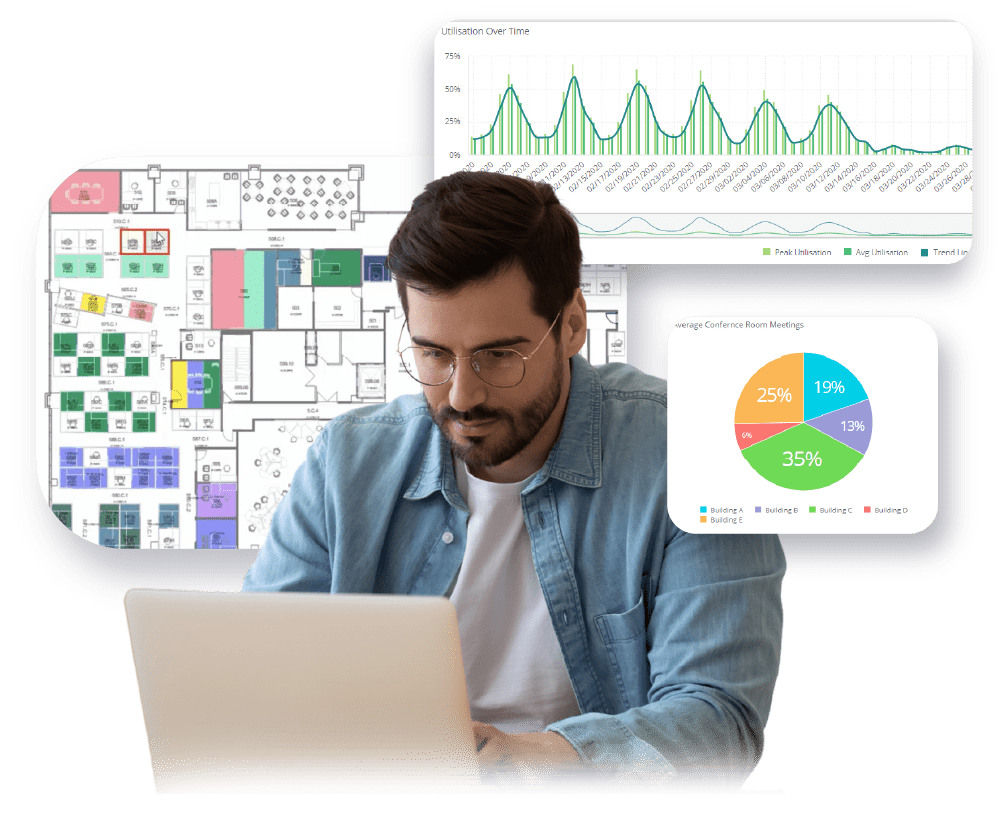
Succeeding With Sensors
Occupancy and environmental sensors offer many benefits to employers and employees, but do not make the mistake of assuming sensors are universally understood. Workplace Management Solutions must be thoughtfully implemented, taking into consideration employee concerns and questions about privacy and anonymity.
- Clear and frequent communication is key.
- Maintain an open dialogue with employees about new technologies and be transparent about business decisions related to hybrid work.
- Reach out across the organization to get buy-in and support from your digital workplace trifecta: HR, IT, and Facilities.
- Take steps to promote the adoption of other digital workplace tools like kiosks, panels, and reservation systems.
- Ensure that employees understand the benefit of these technologies to them, and you will experience the success of a sensor-driven hybrid workplace.
clients
say
– Marshall Elliott, Learning Center Coordinator, Sutter Health
Build an ever-ready strategy
Find out why our 1,200+ customers around the globe can enjoy the strength of a single best-in-class solution – or unlock the power of our fully-integrated platform – to address their most pressing challenges today, tomorrow and 100 years from now.





